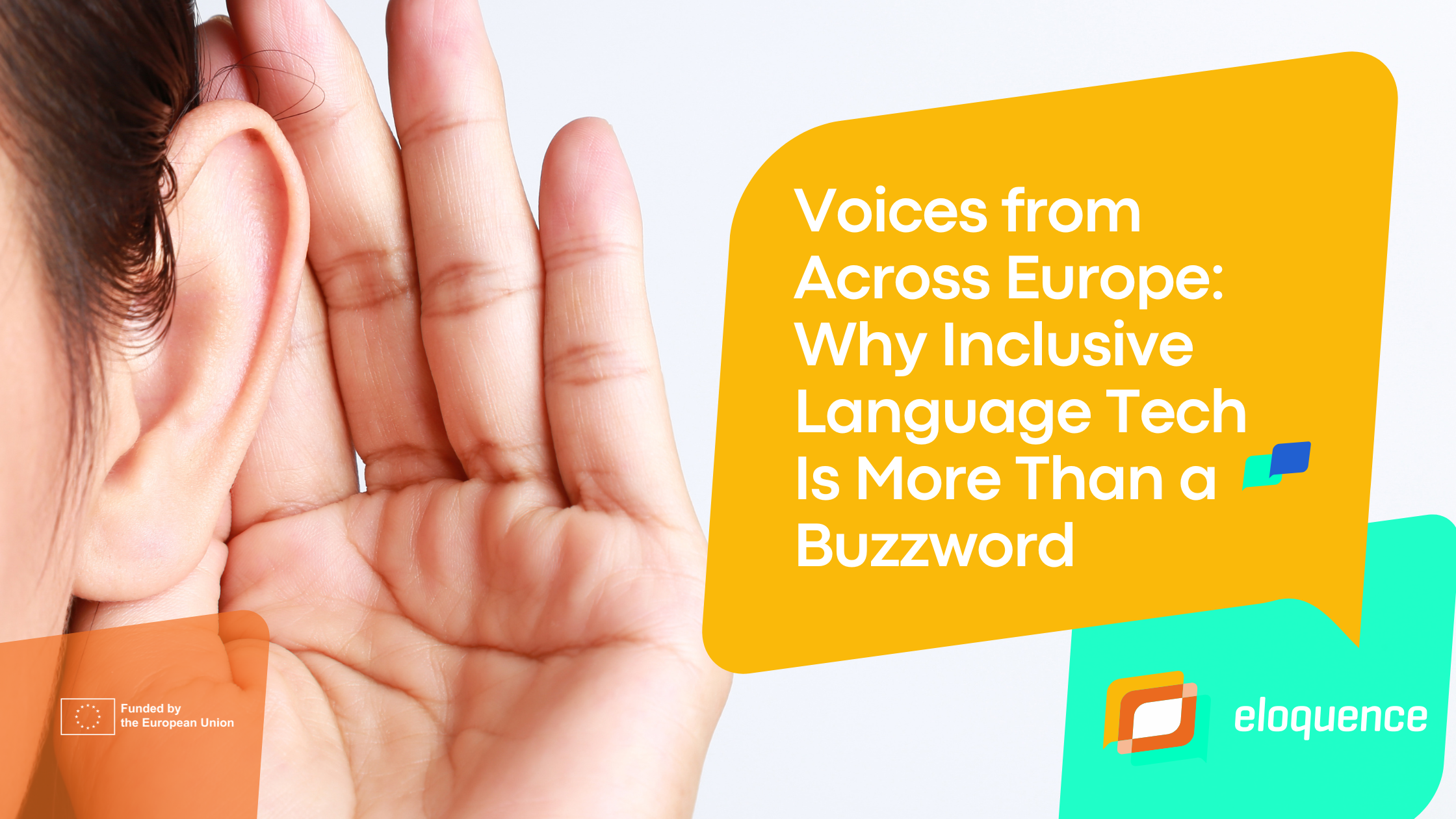In an increasingly interconnected world, language remains both a bridge and a barrier. While AI-powered tools like voice assistants, chatbots, and translation engines are revolutionizing how we communicate, not all voices are being heard equally. At the heart of the ELOQUENCE project lies a belief: inclusion in language technologies is not a luxury—it’s a necessity.
Across Europe, hundreds of millions of people speak diverse languages, dialects, and regional variations. Yet, most commercial AI systems are trained on dominant languages, often overlooking less-resourced or minority ones. This leads to gaps—not just in communication, but in access to public services, education, legal aid, and digital opportunities. ELOQUENCE steps in to change that narrative.
Our consortium is developing multilingual, bias-controlled language models capable of operating effectively across languages and cultural contexts. From smart home interactions to support centre pilots in multilingual regions, our technologies are designed to reflect Europe’s linguistic richness and cultural diversity. But inclusion is not just about adding more languages to a list. It’s about ensuring faithful, context-aware, and equitable AI interactions, especially in high-stakes domains.
We work closely with partners across Europe—researchers, policymakers, technologists, and civil society—to understand what “inclusion” really means on the ground. Through user testing, pilot deployments, and our Interactive Playground, we invite people from all walks of life to engage with our tools, give feedback, and shape the future of language AI.
Because in the end, true innovation doesn’t come from one voice—it comes from many voices, in many languages, with equal respect and access. ELOQUENCE is not just building technology. We’re building a Europe where everyone is heard.


